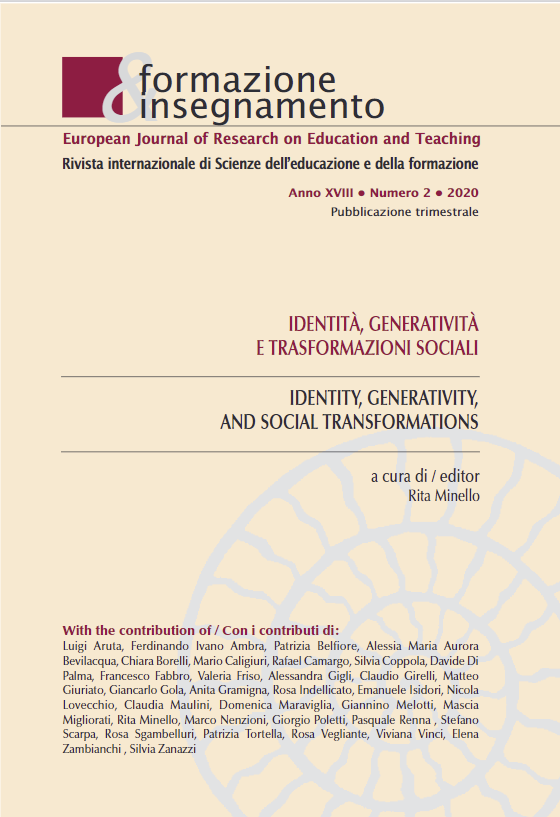Ecological motricity and “risky play” in kindergarten
DOI:
https://doi.org/10.7346/-fei-XVIII-02-20_19Abstract
Motor skills are at the basis of the child’s physical activity and are very specific. It is essential that pre-school children can develop as many basic motor skills as possible and to do this they need a lot of motor activity, repeated over time. Motor skills allow the child to better understand the environment and recognise the dangers. Children with a low level of motor skills risk not recognising dangerous situations and not being able to cope with them. In kindergartens in Norway and Northern European countries, “risky play” is implemented as an integral part of the school curriculum. In this article, a questionnaire on “risky play” was given to 425 teachers in Italian kindergartens participating in a national training project on motor education. The questions referred to the categories of ‘risky play’ in Norwegian kindergartens. The teachers answered with a significant prevalence of rejection of the activities indicated, as they were considered dangerous and inappropriate. Reasons were given regarding safety, responsibility, school regulations. The study confirms the principles of ecological motricity, which considers the relationship between motor education, physical environment, human context, characteristics of the person, type of task to be fundamental. For a widening of the opportunities and potential of pre-school in the training of children, we suggest training paths and above all cultural exchanges to know and share beliefs and practices.
Downloads
Published
How to Cite
Issue
Section
License
Copyright (c) 2020 Pensa MultiMedia

This work is licensed under a Creative Commons Attribution 4.0 International License.
Formazione & insegnamento is distributed under Attribution 4.0 International (CC BY 4.0).
For further details, please refer to our Repository & Archiving Policy, as well as our Copyright & Licensing Terms.





